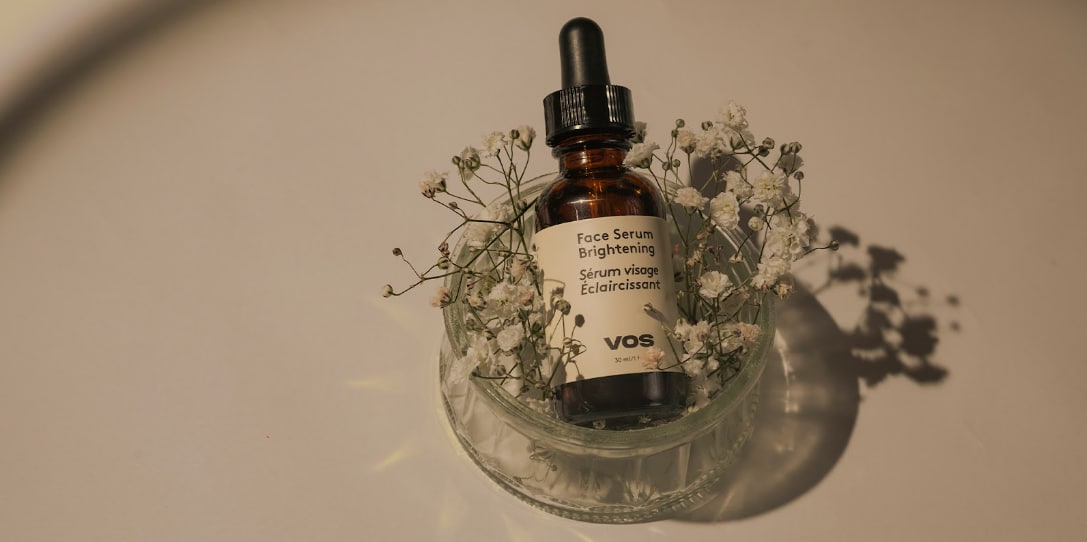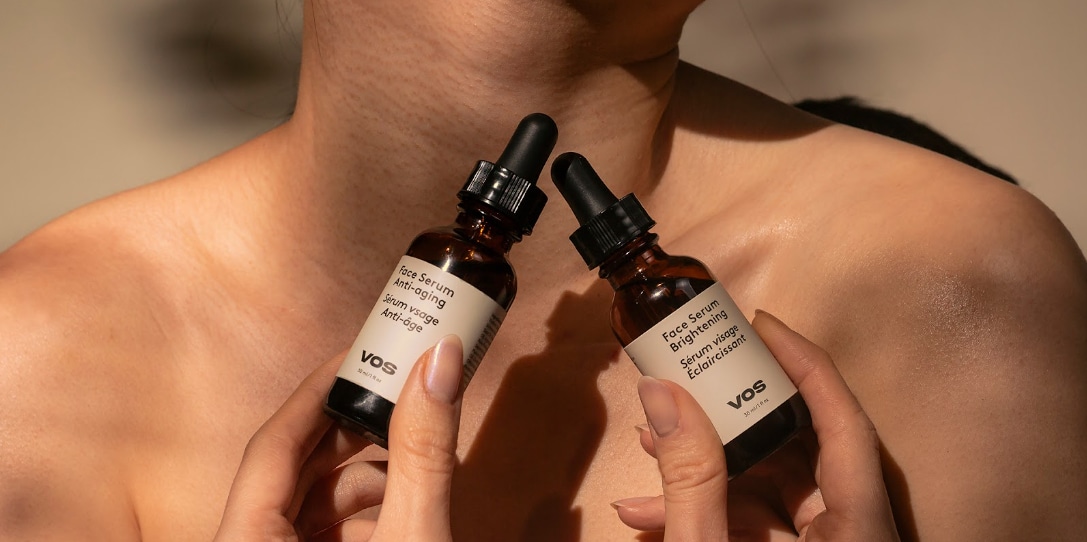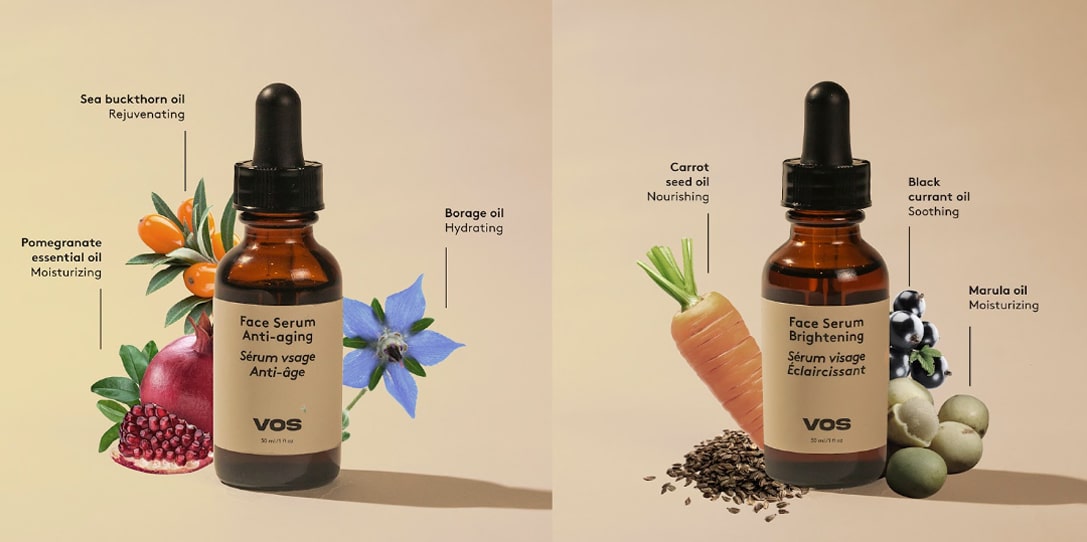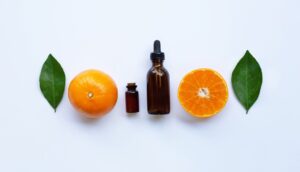Oil-based skin care has been growing in popularity in recent years—and for good reason! Natural oils from plants and botanicals offer a ton of benefits, such as nourishing, moisturizing, and protecting our delicate skin.
But some people are still hesitant about using oil-based products, like serums, on their faces. Will it make my face even oilier? Will it clog my pores? Will it make my skin break out? These are all very good questions and legitimate concerns, and we’re here to set the record straight so you can start enjoying all the benefits that natural oils can provide for your skin.
Are face serums right for me?
Face serums are an important part of a healthy skin-care routine. They are designed to penetrate deep into the skin, delivering high concentrations of active ingredients that target skin concerns like fine lines, inflamed skin, or uneven skin tone. Serums are applied to the face after cleansing and toning, before layering on heavier products like creams and moisturizers.
But, just like any other skin-care product, not all face serums are created equal. There are all-natural face serums, while others may contain some synthetic ingredients. There are lightweight, water-based face serums, and then there are highly emollient, oil-based face serums. While they all provide tons of benefits for our skin, it’s important to understand your specific needs so you can choose the right type of skin-care products—and the right ingredients and formulations—that will make your skin the happiest.
Oil-based vs. water-based face serums
The main differences between oil-based and water-based face serums are their consistency and the ingredients used. Water-based face serums are typically formulated with ingredients like hyaluronic acid and glycerin, giving them a non-greasy texture and making them pleasantly lightweight.
Oil-based face serums, on the other hand, use plant-derived oils in their formulations to nourish skin. These types of natural oils are rich in many skin-loving goodies—like essential fatty acids, vitamins, antioxidants, and amino acids—that help improve elasticity, fortify its barrier, and maintain a healthy-looking complexion. Common natural oils in these types of serums include jojoba oil, rosehip oil, argan oil, and sweet almond oil. These serums tend to have a thicker, silkier consistency than their water-based counterparts, and when applied to the face, they may feel slightly greasy or oily at first. However, they are designed to quickly absorb and leave the skin feeling hydrated, supple, and smooth.
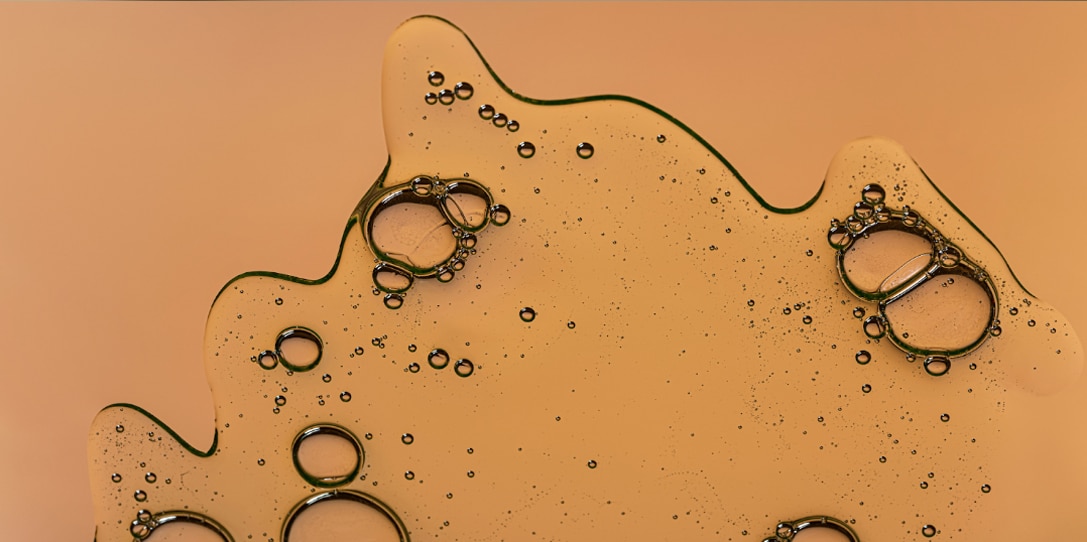
Choose non-comedogenic oils for your skin
The key to safely incorporating oil-based skin-care products without irritating skin or breaking out is to make sure that the oils are natural, nourishing, and non-comedogenic. Comedones, commonly referred to as blackheads or whiteheads, occur when pores become clogged with oil, dirt, or dead skin cells. Non-comedogenic oils do not clog pores or cause breakouts.
Oils are rated on a scale from 0 to 5 to indicate their comedogenic levels (i.e., how likely they are to clog pores). The higher the number, the more comedogenic an oil is likely to be. Oils that boast a rating of two or lower are generally considered to be non-comedogenic. Non-comedogenic oils let your skin breathe while retaining moisture, making them likely to be a safe ingredient to use even for those with acne-prone skin. That being said, it’s important to note that each individual’s skin has different oil compositions and may react differently to the same ingredient, so a patch test is always recommended to ensure that a new product works well with your skin. When in doubt, always do your research before adding any products with new ingredients into your routine.

If you’re ready to level up your skin care and add oil-based products to your routine, look out for common non-comedogenic oils that can be found in popular skin-care products like these:
- Jojoba oil
- Tea tree oil
- Rosehip oil
- Hempseed oil
- Sweet almond oil
- Grapeseed oil
- Sunflower oil
Benefits of oil-based face serums
Now that we know what non-comedogenic oils don’t do to our skin, let’s take a deeper look at some of the wonderful benefits that they do deliver. Oil-based face serums that use natural, plant-based oils have so much to offer our skin to help it maintain its radiance and glowing complexion.
Provides deeper hydration and seals in moisture.
Oil-based face serums are able to go beyond the skin barrier and deeply nourish skin. It also locks in moisture to keep your face feeling soft, smooth, and supple all day long.
Delivers more active ingredients to the skin.
The oils in these types of serums are able to carry active ingredients beneath the surface of the skin, maximizing their efficacy and delivering better results than water-based face serums. The oils also contain more potent active ingredients that benefit the skin.
Boosts absorption of other skin-care products.
Oil-based face serums facilitate the absorption of other nutrients applied to the skin, and it acts as a barrier that locks in moisture as well as other active ingredients.
Can be all-natural and suitable for all skin types.
With so many plants, nuts, and seeds that offer a ton of benefits to our skin, it’s easy to keep the products in our skin-care regimen completely natural. With the right ingredients and the right formulations, there is a natural, oil-based face serum for every skin type—even for oily or acne-prone skin!
Helps to brighten and revitalize skin.
Face serums rich in vitamin C are effective in brightening skin, reducing the appearance of dark spots, and evening out skin tone. Rosehip oil, sea buckthorn oil, and camellia oil are all wonderful sources of vitamin C, among other skin-nourishing nutrients.
Keeps skin looking healthy and youthful.
When it comes to maintaining a youthful complexion, several natural oils have a great reputation for providing anti-aging properties that can improve your skin’s appearance. Argan oil, rosehip oil, jojoba oil, and pomegranate oil are popular ingredients in anti-aging face serums because they are rich in nutrients, essential fatty acids, vitamin A, vitamin E, and antioxidants. They help fight free radicals, protect the skin, hydrate, moisturize, and reduce the appearance of wrinkles and fine lines. With the right ingredients, anti-aging serums can do wonders to revitalize and rejuvenate your skin.
By now, we know that what we put on our bodies can be just as important as what we put in them. Numerous studies have shown that topical applications of plant-based oils or products can have noticeable effects on the skin. Remember that these natural oils have different properties and serve different purposes in skin-care products, so it’s important to do your research to make sure you’re incorporating the right oils and right products for your skin.

